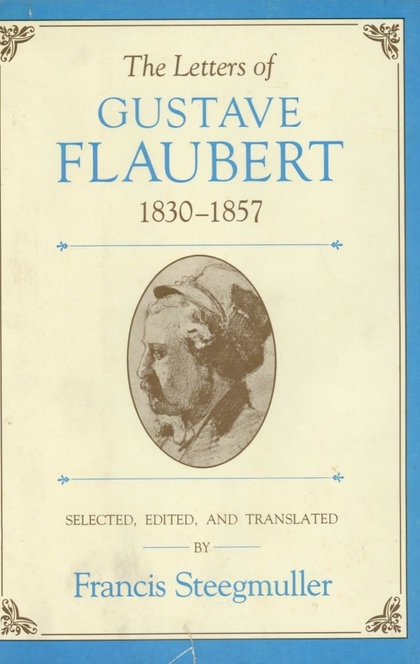The Letters of Gustave Flaubert: 1830-1857
Updated:
7 Sep 2020
Gustave Flaubert wrote to his mistress, Louise Colet: "An author in his book must be like God in the universe, present everywhere and visible nowhere." In his books, Flaubert sought to observe that principle; but in his many impassioned letters he allowed his feelings to overflow, revealing himself in all of his human complexity. Sensuous, witty, exalted, ironic, grave, analytical, the letters illustrate the artist's life--and they trumpet his artistic opinions--in an outpouring of uninhibited eloquence. An acknowledged master of translation, Francis Steegmuller has given us by far the most generous and varied selection of Flaubert's letters in English. He presents these with an engrossing narrative that places them in the context of the writer's life and times. We follow Flaubert through his unhappy years at law school, through his tumultuous affair with Louise Colet; we share his days and nights amid the temples and brothels of Egypt, then on to Palestine, Turkey, Greece, and Rome. And the letters chronicle one of the central events in literary history--the conception and composition of what has been called the first modern novel, Madame Bovary. Steegmuller's selection concludes with Flaubert's standing trial for immoral writing, Madame Bovary's immediate popular success, and Baudelaire's celebration of its psychological and literary power. Throughout this exposition in Flaubert's own words of his views on life, literature, and the passions, readers of his novels will be powerfully reminded of the fertility of his genius, and delighted by his poetic enthusiasm. "Let us sing to Apollo as in ancient days," he wrote to Louise Colet, "and breathe deeply of the fresh cold air of Parnassus; let us strum our guitars and clash our cymbals and whirl like dervishes in the eternal hubbub of forms and ideas!" Flaubert's letters are documents of life and art; lovers of literature and of the literary adventure can rejoice in this edition.




